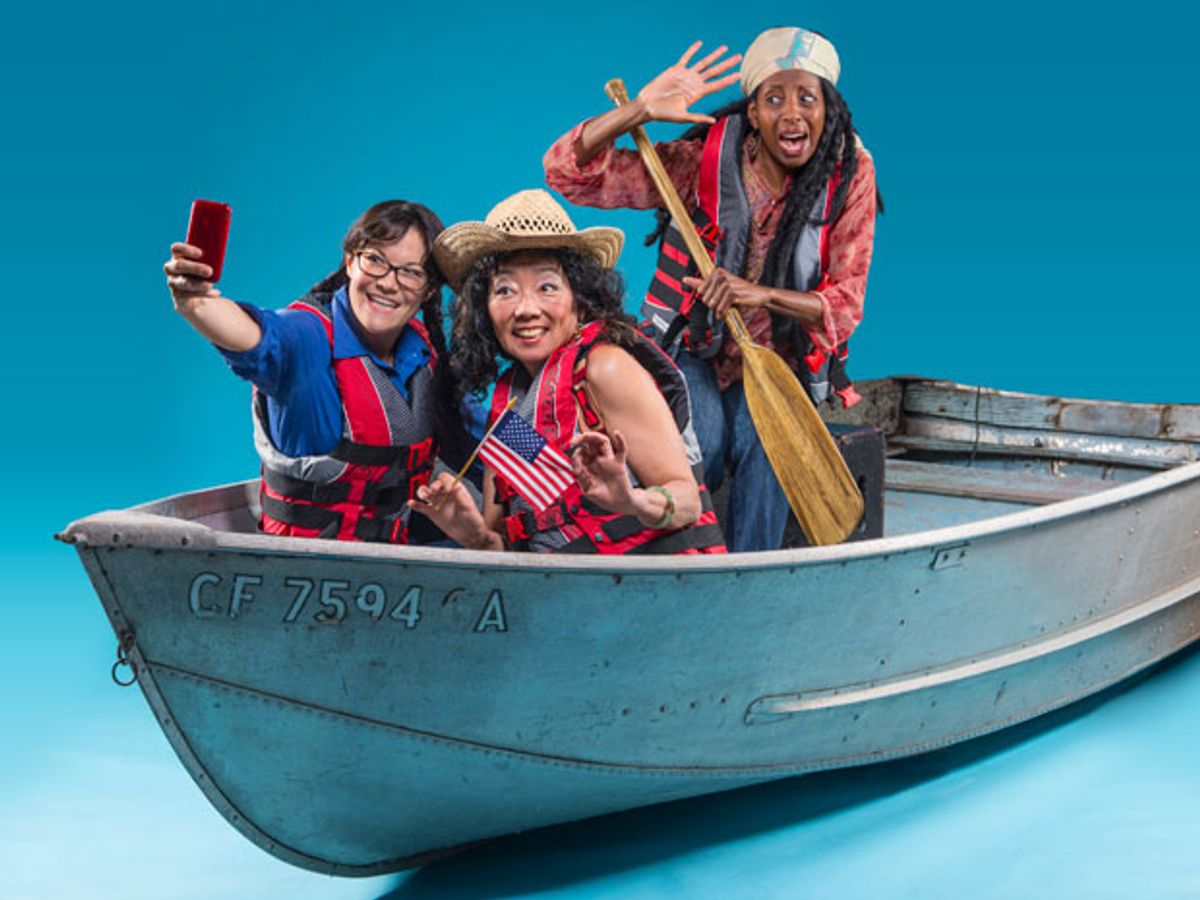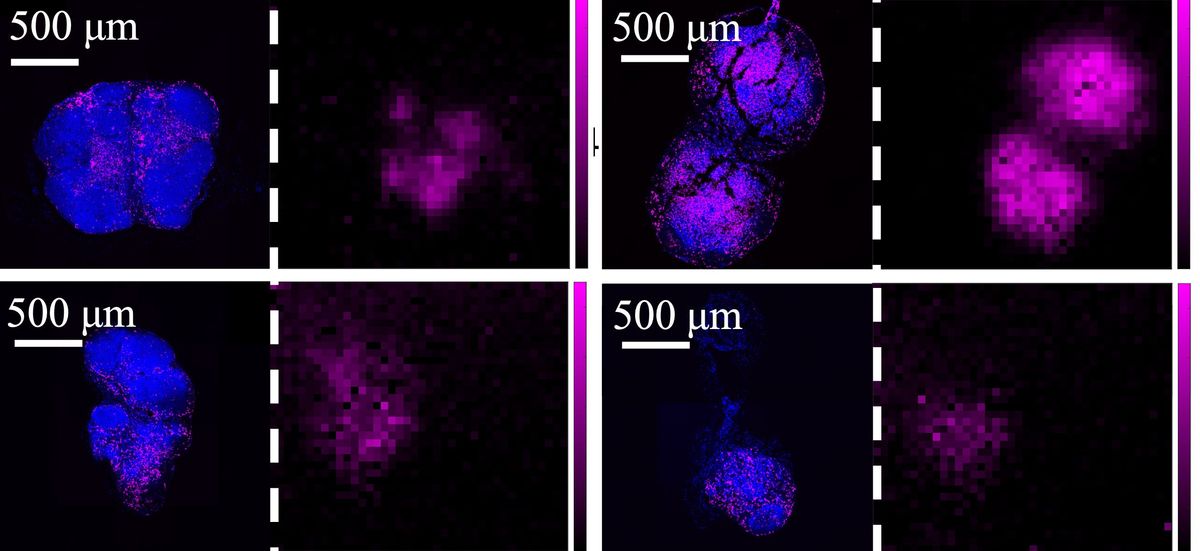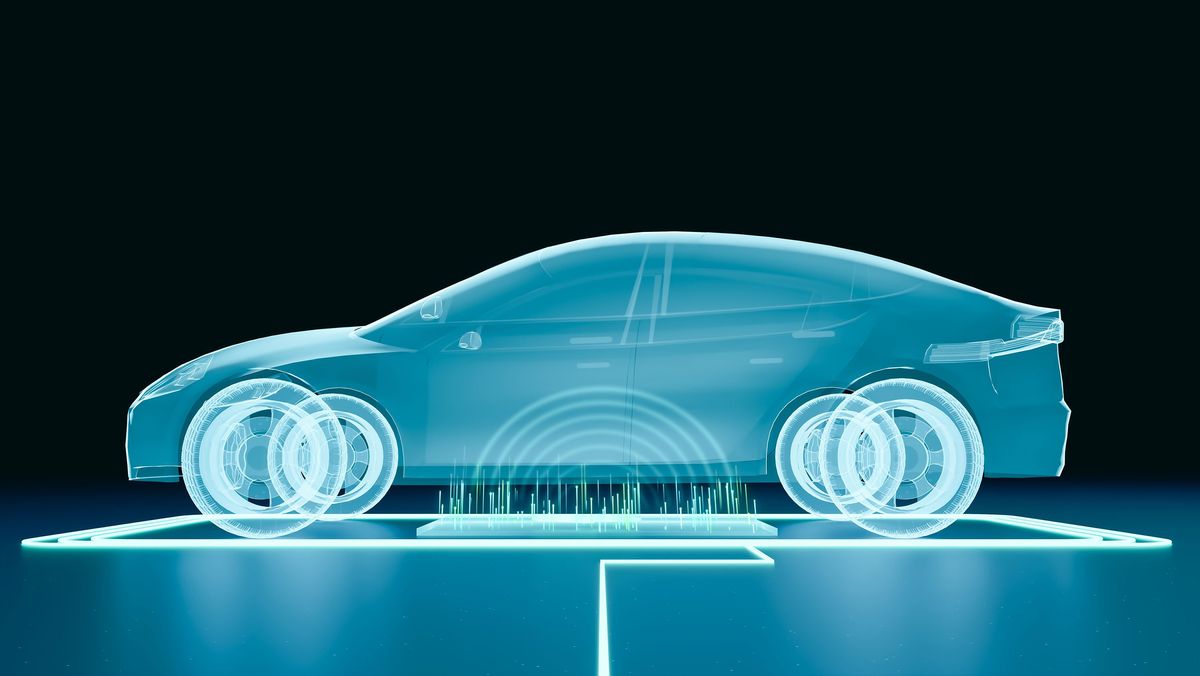They wear hoodies, spill out of crowded bars on weekends, and are whisked to work on luxury buses with tinted windows. They are driving up rents all over town. They are the techies, the new immigrants to San Francisco that long-term residents love to hate, going so far as to stage protests against the buses and toss the occasional egg at them.
And they are the subject of this year’s production of the San Francisco Mime Troupe, a far-left-leaning group of playwrights and actors that has been performing political theater for more than 50 years. They travel to parks in San Francisco and beyond throughout the summer and into the autumn.
I’ve followed the Mime Troupe for decades; its shows are always entertaining and thought provoking, and typically take on issues surrounding the national government or the global economy. So the local focus of this year’s show, "Ripple Effect," came as a surprise.
Michael Gene Sullivan, lead writer of and a performer in this year’s show, says "Ripple Effect" indeed came out of a plan to tackle a national issue—the idea that many of the workers in today’s economy don’t realize that they are working class, and that “the middle class is an invention to get the workers of the world to fight among themselves” (a line used in the show). He quickly came to realize that this issue is the heart of San Francisco’s current conflicts.
“We in San Francisco are making the tech workers who are moving to the city feel isolated and separated. That’s a problem. These are hard working people. Yes, they are paid a lot of money, but we are in a tech bubble—in six months, a year, companies might suddenly downsize,” Sullivan says.
“We want them to see themselves as part of our class, the working class," he says. "We want to show the people who today define the city—the leftist activists, the immigrants, and the software engineers—that they have more in common with each other than they do with the bosses.”
"Ripple Effect" features three women—long-time radical Deborah, immigrant and salon-owner Sunny, and tech newbie Jeanine—who are literally in the same boat, taking a tour of the San Francisco Bay. Jeanine just moved to California from a small town to work for giant Silicon-Valley-company Octopus Tech; she won the job in an app design contest. Her app, "SUSI", the Support Utility for Special Individuals, lets anybody check up on anybody else; Sunny uses it to make sure she knows everything her daughter is doing and thinks it’s brilliant; she can read her daughter’s emails and turn on the smartphone’s camera to observe her daughter without her daughter’s knowledge. Deborah sees SUSI as a tool of the “cryptofascistic surveillance-ocracy”, yet another extension of the “electronic chains holding you in a CIA prison of the mind”. For Jeanine, SUSI is a gift of love: she developed it to help her mom take care of her Grandma Susi, who was getting lost and bankrupting herself by excessive online shopping.
"Ripple Effect" also involves Octopus Tech’s effort to build condos (and evict Sunny), a few lessons in the history of the radical left, a skewering of the current trend to open office space, Octopus’s agreement to sell SUSI to the government (repurposed as the Secret Utility for Surveillance and Intelligence) and Jeanine’s repeated assertion that she’s just a software engineer, she’s not political. In the end, techie Jeanine saves the day—using a backdoor in her software to create an alarm that alerts you if someone has installed SUSI on your phone without your knowledge.
“With an app,” she says, “you can do anything.” And, Jeanine comes to understand, “There is no such thing as not political.”
As a long-time member of the Mime Troupe, writer Sullivan’s familiarity with radical history and working-class immigrants wasn’t surprising. Perhaps more unexpected was his sympathetic portrayal of idealistic software engineer Jeanine; but, it turns out, Sullivan is no stranger to the tech world.
“My father,” he told me, “worked in Silicon Valley in the 70s and 80s; he was one of the first people who worked for Amdahl Corp. (as a senior engineer). After he retired, he taught computers to homeless people.”
In everyday life, Sullivan has found himself coming to the defense of the hoodie-wearing hordes. “People complain that when they see techies in the Mission District they are hanging out in the bars, drinking in the street. I tell them that these guys are working 80 hours a week. When you see them on the Google bus, they are working. If you see them in a bar, they earned that. When you’re in you’re 20s, and you grind at work, and what you used to do for fun has turned into a job, [in your free time] you get drunk and scream.”
When the show opened in San Francisco, Sullivan says, a fair number of tech workers showed up. “People came because they were excited that we were writing a play about a tech character that is likable, not crazy, not trying to be evil," he explains. "She’s not thinking about the money, she’s saving her grandma; she sees a need, and she fills it. That’s like most apps: there’s a small need, the app fills the need, and it makes people’s lives easier. The thing to understand, though, is that these things can be manipulated.”
Besides tech workers, Sullivan says he has talked to people in the audience who admit to egging a Google bus. “They didn’t feel that we are being too kind to the tech worker in this show," he says. "It’s not that they hated the people on the bus, they hate the idea that the city is giving the buses a pass, letting them park in bus stops for $1 when these are the richest companies in the world.”
Sullivan hopes that the play will help members of all three communities—the leftist activists, the immigrant community, and the software engineers—understand each other better. And that the techies will realize that they can’t live in a bubble, that it’s time, both metaphorically and literally, to look out the windows of the bus.
See a schedule of upcoming performances of "Ripple Effect" here. Admission is free but donations are requested.
Tekla S. Perry is a senior editor at IEEE Spectrum. Based in Palo Alto, Calif., she's been covering the people, companies, and technology that make Silicon Valley a special place for more than 40 years. An IEEE member, she holds a bachelor's degree in journalism from Michigan State University.



